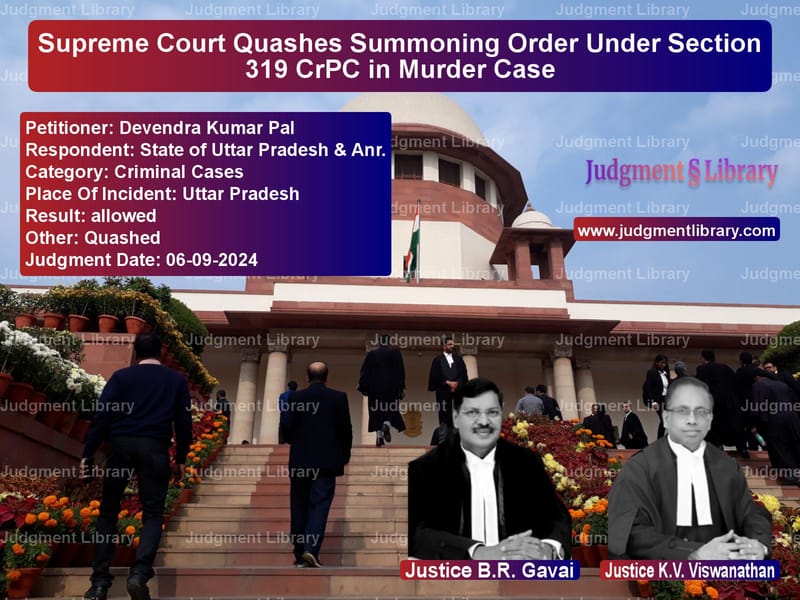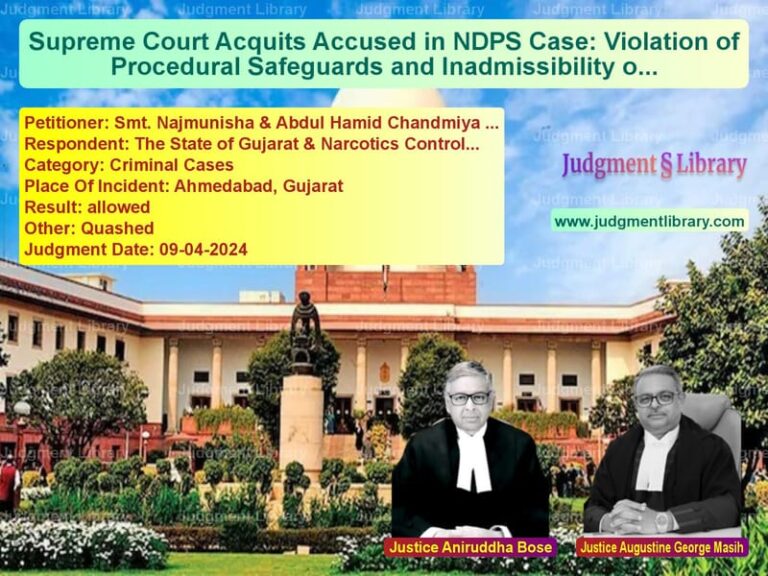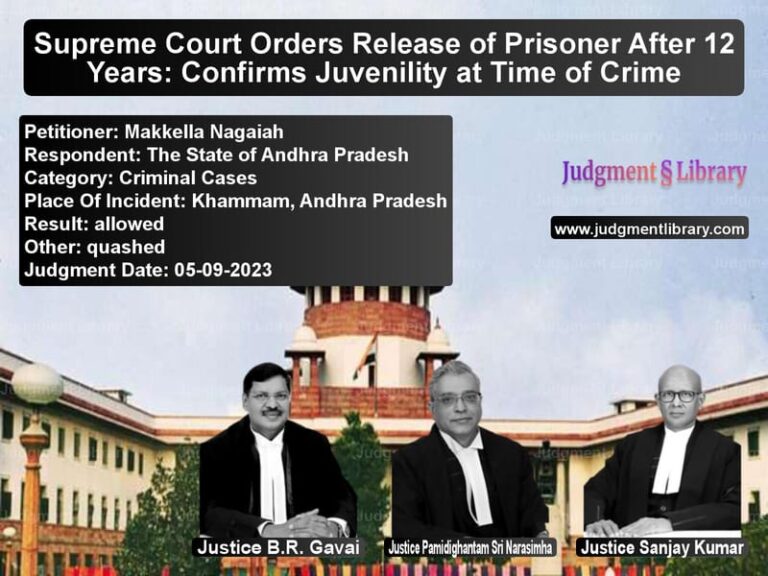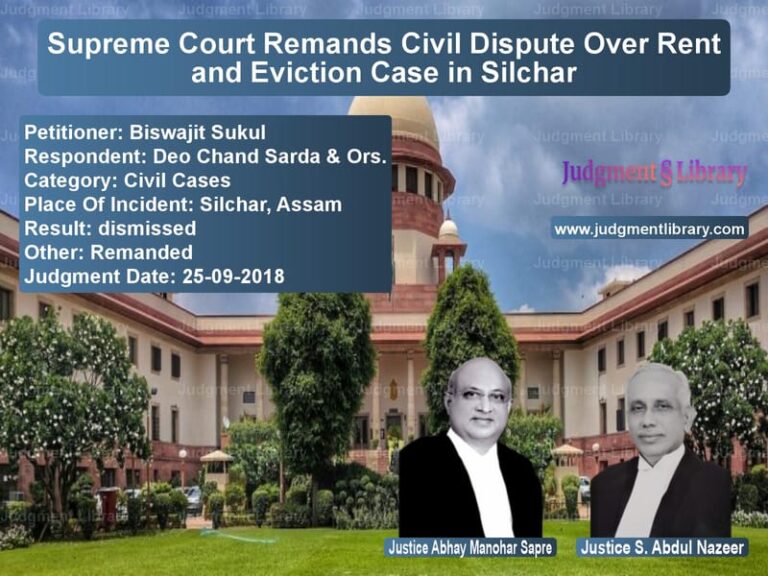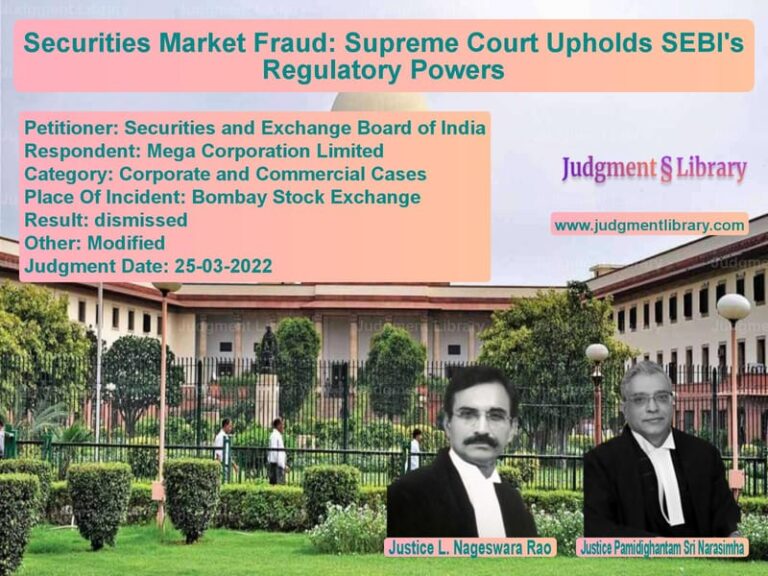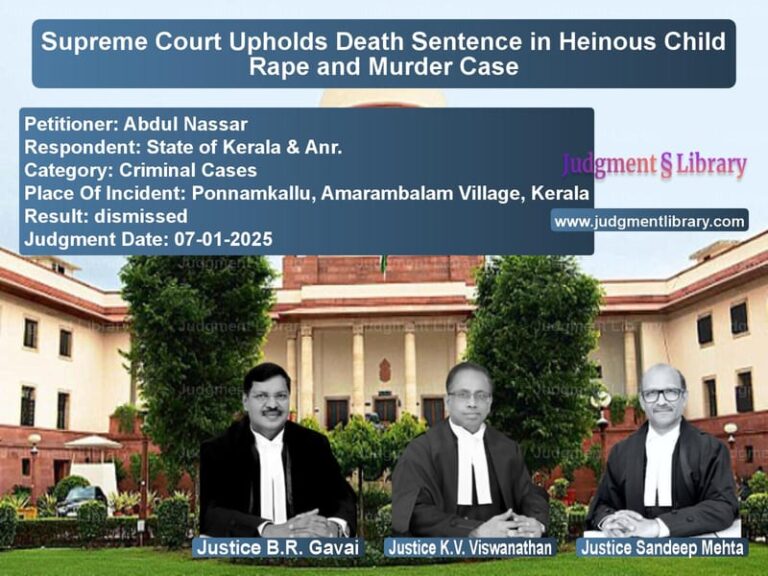Supreme Court Quashes Summoning Order Under Section 319 CrPC in Murder Case
The case of Devendra Kumar Pal vs. State of Uttar Pradesh & Anr. is a significant ruling addressing the powers of a trial court under Section 319 of the Code of Criminal Procedure, 1973 (CrPC). The Supreme Court quashed the summoning order issued against the appellant, ruling that such an order, passed after the pronouncement of conviction and sentencing, is legally unsustainable.
This ruling reaffirms the principles established by the Constitution Bench in Sukhpal Singh Khaira vs. State of Punjab regarding the timing and validity of summoning orders under Section 319 CrPC.
Background of the Case
The case arose from a murder trial in Uttar Pradesh, where the appellant, Devendra Kumar Pal, was initially not named as an accused. The trial court proceeded with the case under Section 302 IPC and, after the trial, convicted some accused while acquitting others.
However, after announcing the conviction and acquittal orders, the trial court invoked Section 319 CrPC to summon the appellant for trial. This order was challenged before the Allahabad High Court, which upheld the trial court’s decision.
Key events in the case:
- March 21, 2012: The trial court convicted some accused, acquitted others, and later, in the second half of the day, summoned the appellant under Section 319 CrPC.
- August 25, 2021: The Allahabad High Court dismissed the appellant’s petition challenging the summoning order.
- September 6, 2024: The Supreme Court quashed the summoning order, citing the ruling in Sukhpal Singh Khaira.
Legal Arguments
Arguments by the Appellant (Devendra Kumar Pal)
- The summoning order under Section 319 CrPC was issued after the trial court had already convicted and sentenced some accused and acquitted others.
- The Constitution Bench in Sukhpal Singh Khaira held that such orders must be passed before conviction or acquittal, and once sentencing is pronounced, Section 319 CrPC cannot be invoked.
- The trial court’s approach of issuing the summoning order in the second half of the day, after sentencing in the first half, was legally flawed.
Arguments by the Respondents (State of Uttar Pradesh & Others)
- The summoning order and conviction were passed on the same date, and therefore, the trial court had jurisdiction to summon the appellant.
- Since the summoning order was part of the same judicial process, it was valid even if passed after sentencing.
- The Constitution Bench ruling only applied to cases where the summoning order was issued on a later date than sentencing.
Supreme Court’s Observations
1. Can Section 319 CrPC Be Invoked After Conviction and Sentencing?
The Court referred to the ruling in Sukhpal Singh Khaira and held that once a trial court pronounces a conviction or acquittal, it loses the power to invoke Section 319 CrPC.
“The summoning order has to precede the conclusion of the trial by imposition of sentence in the case of conviction. If such an order is passed after the order of acquittal or sentencing, it is not sustainable.”
Read also: https://judgmentlibrary.com/supreme-court-restores-charges-in-aiadmk-political-murder-case/
2. Validity of the Trial Court’s Approach
The Court noted that the trial court had first convicted and acquitted the accused in the morning session, pronounced sentencing post-lunch, and then issued the summoning order against the appellant.
“If a trial court first convicts and sentences some accused and then, later in the day, issues a summoning order under Section 319 CrPC, it amounts to an afterthought and is not legally valid.”
3. Constitutional Bench Guidelines on Section 319 CrPC
The Supreme Court reaffirmed the guidelines set out in Sukhpal Singh Khaira:
- Summoning under Section 319 CrPC must be done before sentencing in the case of conviction.
- Once sentencing or acquittal is pronounced, the trial court loses the power to summon additional accused.
- If a summoning order is passed on the same day as sentencing, courts must examine the facts to determine its validity.
Final Verdict
The Supreme Court issued the following directives:
- The judgment of the Allahabad High Court dated August 25, 2021, was set aside.
- The summoning order issued by the trial court on March 21, 2012, under Section 319 CrPC was quashed.
- The appeal filed by the appellant was allowed, and the proceedings against him were terminated.
This ruling upholds the procedural safeguards under Section 319 CrPC and prevents post-sentencing summoning orders that violate the established legal framework.
Petitioner Name: Devendra Kumar Pal.Respondent Name: State of Uttar Pradesh & Anr..Judgment By: Justice B.R. Gavai, Justice K.V. Viswanathan.Place Of Incident: Uttar Pradesh.Judgment Date: 06-09-2024.
Don’t miss out on the full details! Download the complete judgment in PDF format below and gain valuable insights instantly!
Download Judgment: devendra-kumar-pal-vs-state-of-uttar-prade-supreme-court-of-india-judgment-dated-06-09-2024.pdf
Directly Download Judgment: Directly download this Judgment
See all petitions in Bail and Anticipatory Bail
See all petitions in Fraud and Forgery
See all petitions in Contempt Of Court cases
See all petitions in Judgment by B R Gavai
See all petitions in Judgment by K.V. Viswanathan
See all petitions in allowed
See all petitions in Quashed
See all petitions in supreme court of India judgments September 2024
See all petitions in 2024 judgments
See all posts in Criminal Cases Category
See all allowed petitions in Criminal Cases Category
See all Dismissed petitions in Criminal Cases Category
See all partially allowed petitions in Criminal Cases Category

